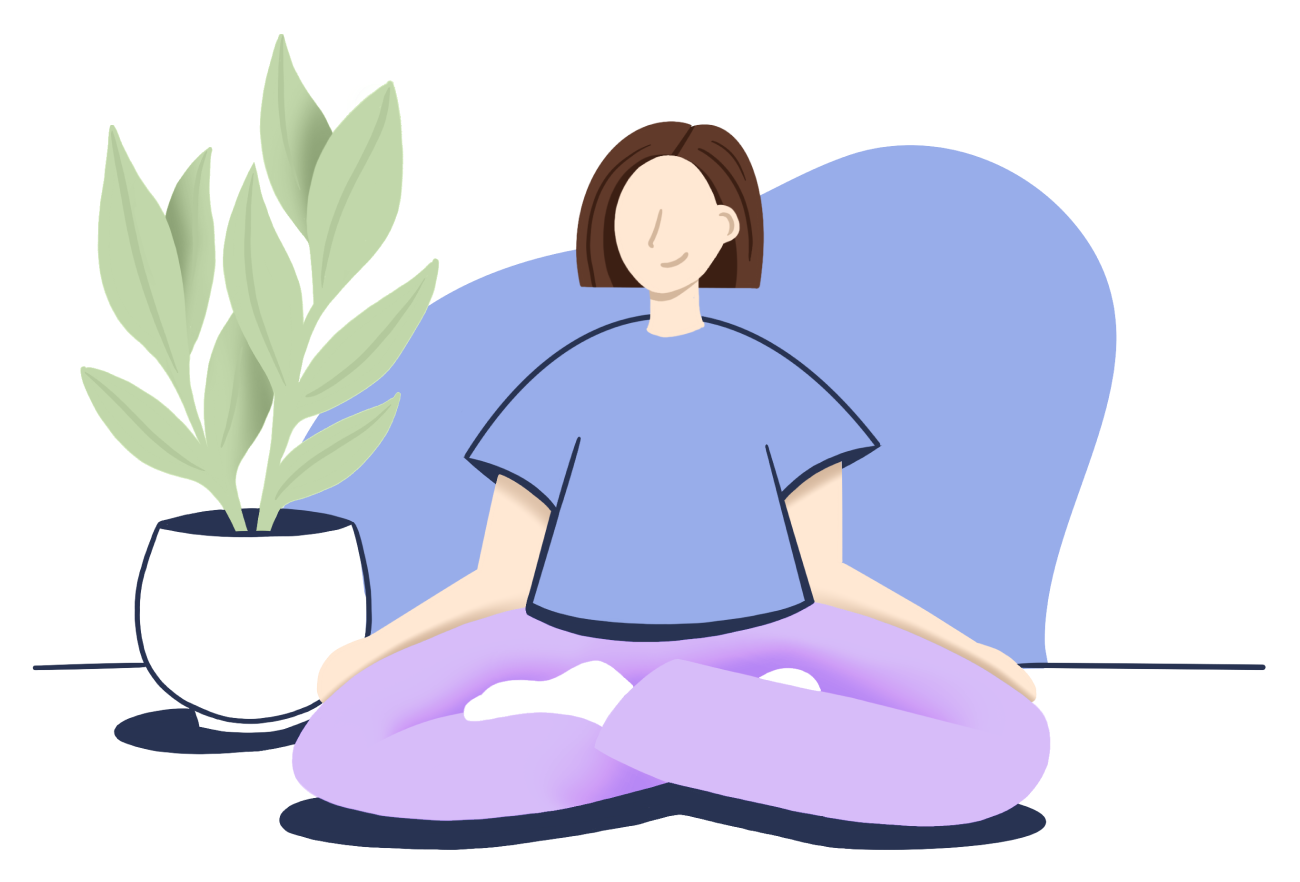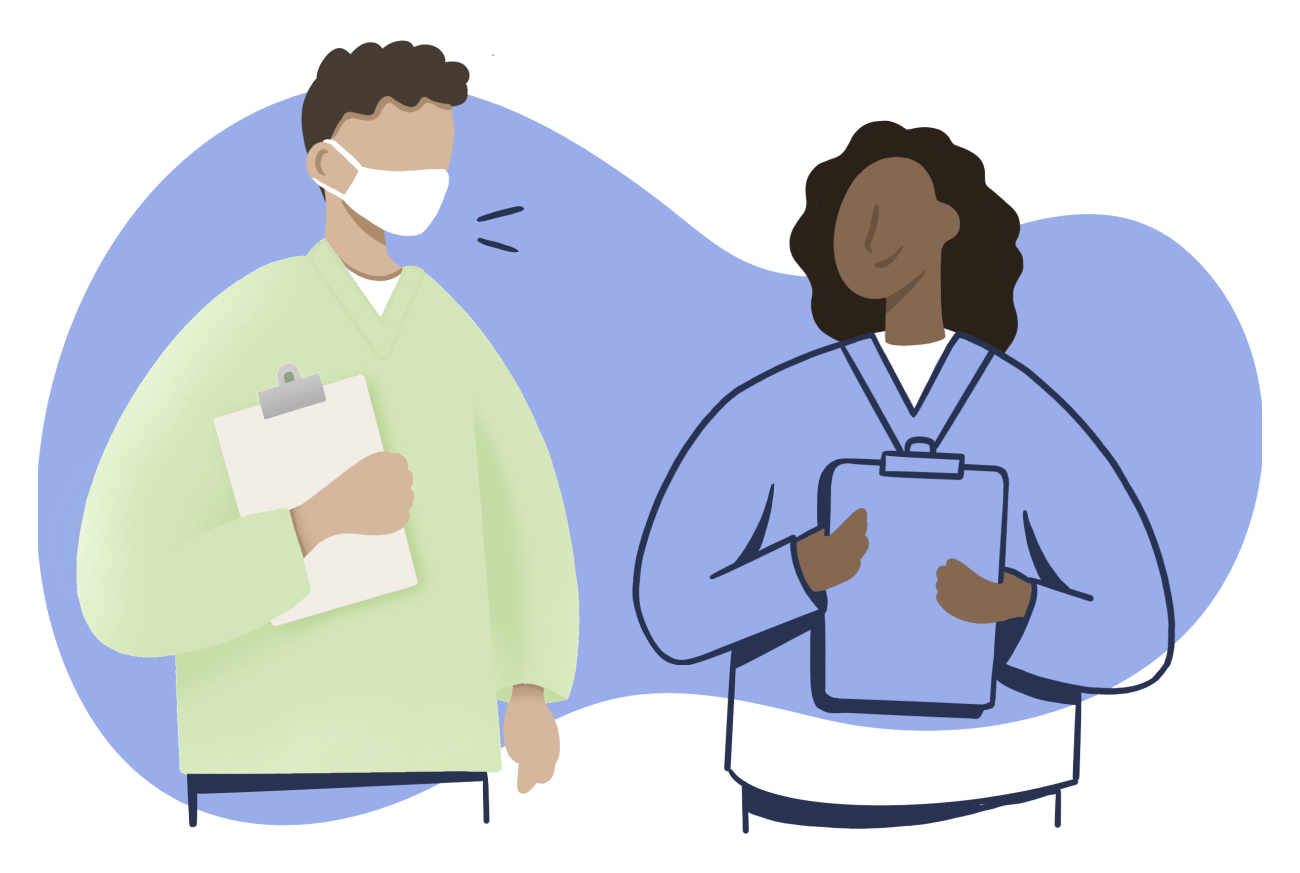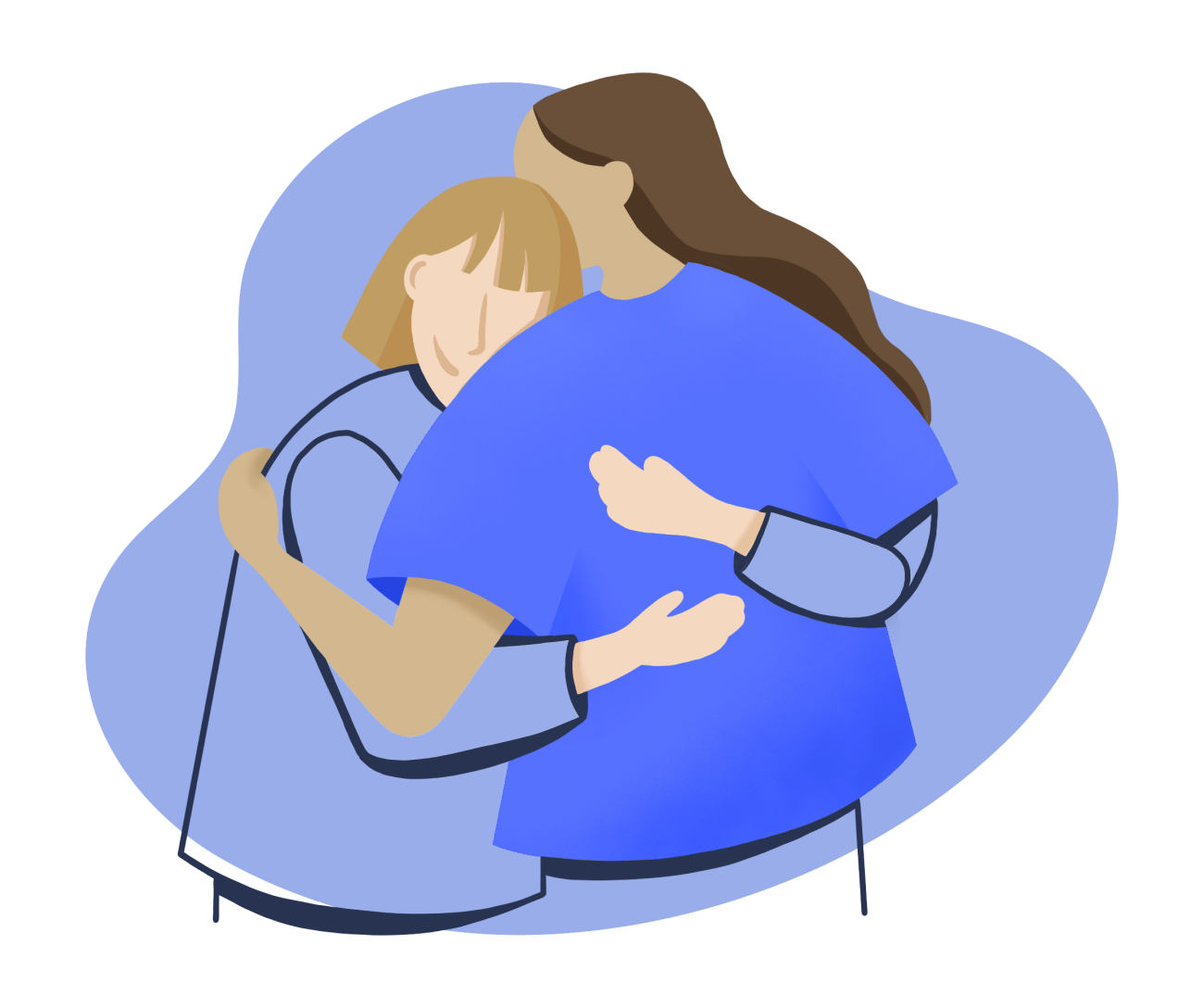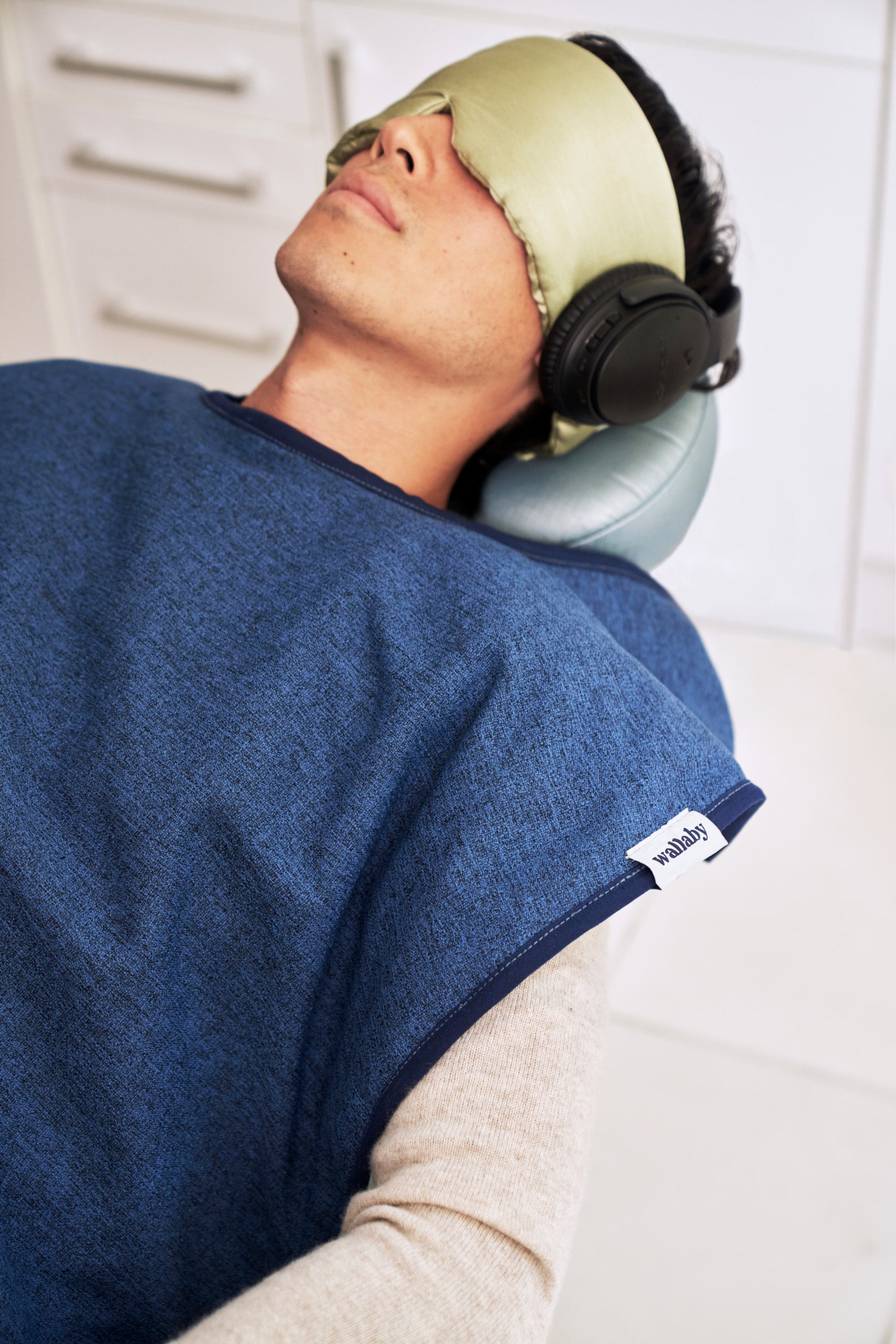
The proof is in the patient
Through extensive research and a study of over 200 patients, it's clear how impactful Wallaby is on a patient's mindset and their health outcomes.
The science behind Wallaby
Weighted blankets are designed to provide a gentle, even pressure across the body, which creates a sense of comfort and calmness in many people. This sensation is a somatic modality often referred to as "deep touch pressure" (DTP) or "deep pressure stimulation" (DPS).

-
The pressure from a weighted blanket may stimulate the release of neurotransmitters like serotonin and dopamine. These chemicals play a crucial role in regulating mood and promoting relaxation.
-
The parasympathetic nervous system is responsible for the "rest and digest" response, promoting relaxation and a sense of calm. Deep touch pressure from a weighted blanket may help stimulate this part of the nervous system leading to decreased heart rate.
-
Deep touch pressure has been suggested to help lower cortisol levels, which is the body's primary stress hormone. By reducing cortisol levels, weighted blankets may contribute to a decrease in feelings of stress and anxiety.
-
The gentle, even pressure from a weighted blanket can increase body awareness and sensory perception. This heightened awareness of one's own body can promote a sense of grounding and safety, helping to reduce feelings of restlessness and unease.
-
Weighted blankets are sometimes used as a sensory integration tool, particularly for individuals with sensory processing disorders. The added weight can help regulate sensory input and improve sensory modulation, leading to increased comfort and relaxation.
-
The sensation of being hugged or held by a weighted blanket mimics the effects of deep touch pressure therapy, which has been known to lower heart rate and induce a sense of tranquility.

"Like a big hug through the extraction process"
Hugs have proven health benefits like reducing stress, regulating emotions, improving sleep, and even fighting off infections, by sending signals to the brain's emotional processing networks triggering positive neurochemicals like oxytocin and endorphins.
In a study of over 200 patients using the Wallaby for the first time, 93% said they would like to use it again during their next visit.

Adult Wallaby
Therapeutic Hug Blanket

Pediatric Wallaby
Therapeutic Hug Blanket